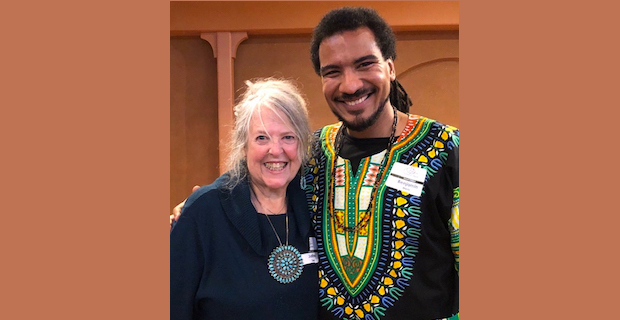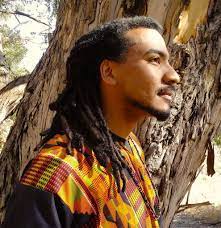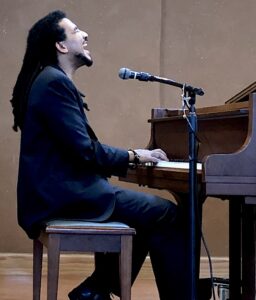
As many of you know, for the last two years I have participated in two anti-racism groups that come together once a month. We are a group of women sharing our experience and learnings regarding social justice. It has been a process for gaining insight and moving into trust of one another as we share with candid honesty.
These monthly gatherings on zoom have expanded my lens beyond my silo of privilege and as a white woman growing up in the U.S.A. The facilitation moves around the circle and recently we were assigned to:

I wrote a letter to Benjamin Mertz, composer, performer, and song leader who specializes in music of the Black Spiritual tradition. He’s also the leader of JoyfulNoise! Gospel Singers. This is a chorus which I have the pleasure of joining every week. I believe the letter is self-explanatory. Benjamin has graciously given permission for me to share it with you.
![]()
January 22, 2022
Dear Benjamin,
I’m so grateful for how you’ve influenced, inspired, and most brilliantly contributed to my life. Thank you.
I’m tremendously moved by your willingness to be vulnerable to the Joyful chorus members as you’ve shared some of your learnings and fears. Most specifically the piece you wrote about your visit to Macon, Georgia. Having been born in New Jersey, it was your first visit to the South. I had to copy the words that you wrote and shared with us because I found them so very deeply insightful and moving.
Here is what you wrote so eloquently in reply to someone asking on the bus, “What is the old money in this town? How did all these beautiful homes come to be? What was the industry here?”
” ‘Who do you think built these houses?’ I found myself asking aloud, a kind of nostalgia and a whisper of a memory in my ear. As if the words belonged not to me, but to someone else. An echo. ‘Whose hands built this town?’
I felt a chasm opening between myself and these pristine estate buildings, different from anything I’ve felt as a child of cities and suburbs. Something older. Deeper. Who, indeed, had built these houses? And what kind of lives had they lived? And on whose bones is that smartly-dressed man standing, as he watches us from his porch? Does he know? Will anyone ever know?
A black gardener passed by, smeared in the sweat of the 95-degree day, tools slung over his shoulder. He caught my glance. We shared a nod. He moved on to do his work.
And I thought, as he knelt towards the black soil, or it may have been a trick of the light, that I saw something reaching up to meet his hands. His strong, black hands. A communion was happening, and my bus was pulling away. And the moment was passing.
And for an instant, I was empty with longing, for something I never knew, and barely understood. Your hands, brother, built this town. And the man on the porch, he thinks he owns this land, but the soil knows, dear brother.
The earth knows whose bones have turned into the black soil that you are tilling. And their strength is in you, as their songs are in me, and we are both like ghosts, dear brother. We are like ghosts treading the ground of a great cemetery, where the tombstones have no names, and the echo of a tune can just barely be heard in the wind.”
As a person with deep roots in the south, I felt the truth of what you wrote rattling my own bones and those of my white ancestors.
You have opened my eyes and heart in so many ways to feel, in some very small part, what it is like for you, as a black man in this culture, to live in constant vigilance for both yourself and for your two young black sons. You’ve requested that in winter months you would like for us to meet earlier because of your concerns to be driving a nice car down Highway 101 as you return to Richmond from Sebastopol after leading us with such exuberance and skill. You are afraid you might be pulled over and to never again be able to arrive safely home to your sons.
I pray that things will be different and not just in the far future but now, for you and your sons and all those of your community. I thank you for all the risks you take on behalf of your black, brown, and Asian brothers and sisters.
Please know that I stand with you in solidarity to erase racism that is so deeply embedded in the American culture. Whether or not the racism is overt or covert. I’m committed to doing my part to uncover my own personal blindness to my own privilege and to uncover the many ways in which I personally contribute to racism in all its forms.
Thank you for being such a warrior and continuing to lead our predominately white member chorus. I mean this with deep sincerity. You have, with unstinting graciousness, contributed to my life in countless ways.
 With a heart full of gratefulness,
With a heart full of gratefulness,
Justine Willis Toms
To know more about the work and activities of Benjamin Mertz and his albums go to: www.benjaminmertz.com
-Justine